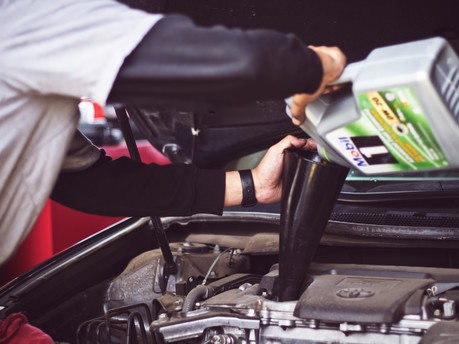Your Guide to MOTs
Everything you need to know about a car's MOT
Owning a car comes with the legal responsibility to maintain your vehicle in a safe and roadworthy condition. Compliance is in the form of an annual MOT test required by law for most vehicles over three years old that are used on anything defined as a ‘road’ in the Road Traffic Act 1988. At EMG we are proud to offer MOT facilities across all our branches located throughout East Anglia.
What is an MOT?
Set by the DVSA (Driver and Vehicle Standards Agency), the MOT test is an annual inspection that makes sure your vehicle meets the minimum acceptable environmental and road safety standards required by law. The mandatory inspection of your vehicle should be conducted by an MOT-certified mechanic each year. The mechanic will check components of your vehicle that may cause risk due to wear over time, including the braking and fuel systems, seatbelts, mirrors and many more.
When does my car need an MOT?
Drivers in the UK are required to have their vehicle MOT tested every year if it is three or more years old.
If you believe there is something wrong with your vehicle, you should seek an inspection from a mechanic regardless of when your MOT is due, as it may prove a danger to you and others. An MOT test is not comprehensive and may fail to diagnose common mechanical problems, so a pass does not guarantee that your vehicle is safe to drive.
What happens if my car doesn’t have a valid MOT certificate?
Driving without an MOT certificate is dangerous, illegal and unsafe. You should never drive your car without an MOT as you can invalidate your insurance and risk the lives of yourself, your passengers and others on the road. If caught driving your vehicle without a valid MOT certificate you could be fined up to £1,000!
What does an MOT check?
The main focuses of an MOT are on the safety and environmental aspects of your vehicle, such as the tyres, lights, brakes, and exhaust emissions. A full rundown of the areas covered is as follows:
Lights and electrical equipment
This includes bulbs, rear reflectors, the horn, the battery, electrical wiring, and any towbars.
Brakes
As a pretty vital part of your car’s operation, all brake pedals, levers and components need to be in safe working order.
Steering and suspension
Areas like shock absorbers are inspected here.
Tyres and wheels
As well as checking for the minimum legal tread depth, MOT testers will also be looking for bulges and damage that could compromise the tyre’s performance and safety.
Seat belts
As a legal safety requirement, it’s no surprise that seatbelts come under scrutiny as part of your MOT.
Exhaust and emissions
Not only is the integrity of your car’s exhaust system inspected, but what it produces is also under the microscope too; the carbon dioxide and hydrocarbon output of your vehicle has to be within a legal limit to pass the MOT.
Driver’s view of the road
Got fluffy dice hanging from the rearview mirror? These would be an issue come MOT time. Anything obscuring a driver’s view of the road could see your MOT fail - this includes major cracks and chips.
Body and miscellaneous
The car’s bodywork is inspected for damage that has sharp edges and therefore could cause injury, and other items like your registration plate and speedometer are checked to ensure they’re visible and secure.
What should I do before my MOT?
Gearing up for your MOT can be in a similar vein to the usual maintenance checks you should carry out on your car to ensure it stays safe and functional. Keep it clean, do a visual check of things like bulbs, tyres and windscreen damage, ensure your fluid levels are where they should be, and stay vigilant for any unusual noises and driving sensations that can be an indication of an internal issue.
How much is an MOT?
The price of an MOT varies depending on the type of vehicle you own, but for most of us with cars, it’s a fairly straightforward fee. The Government set a maximum price for MOTs, which for a standard car is £54.85, and for a motorcycle is £29.65. A full list of prices can be found on the Government website here.
Where should I get my MOT done?
You should always head to a reputable VOSA MOT test centre, such as our East Anglia MOT centres - bonus points if they can supply you with a while-you-wait service, or alternative transport arrangements to ensure it’s as convenient as possible.
MOTs in East Anglia
If you’re in the East Anglia area, it’s likely that you’re not far from an EMG dealership - and every one of our branches offer MOTs! From Thetford to Spalding and King’s Lynn to Ipswich, the experienced technicians that operate from each of our service centres are here to not only carry out your vehicle’s MOT, but carry out the work required if it fails.
Find out more about the service and MOTs we offer here at EMG here, and find your nearest branch over on our contact page.

